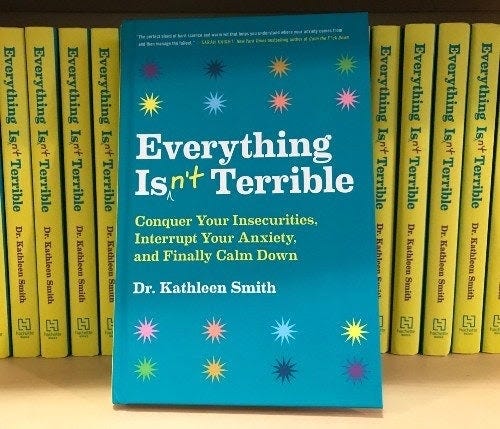Kate (25) hated her dad’s new girlfriend, Allison. They seemed so codependent, and her dad (Dan) would drop everything to help Allison with the most ridiculous tasks. Kate demanded that her dad spend more time with her. Aware of Kate’s animosity, Allison refused to go over to Dan’s house when his daughter was visiting. But she would constantly call him. These distractions angered Kate, who accused her dad of not caring about their relationship. Dan would throw up his hands and say, “I don’t understand why the two of you can’t get along. I’m staying out of it.” Then he’d move toward Allison, and the cycle would start again.
There are two ways to read this story.
The first is to focus on personalities. To read it like a novel, considering who’s the worst, or who’s the victim. Depending on your own experiences, you may be more sympathetic to one person than the others.
The second is to take a systems perspective. Last week I wrote about the value of thinking about process in our relationships rather than content. Families and other groups use mechanisms to cope with anxiety, and identifying these mechanisms can keep you from simply blaming others.
From a systems perspective, this story is a classic triangle.
And in a triangle, each person is trying to get comfortable. They calm themselves down at the expense of another.
When Kate (star) feels on the outside, she tries to pull in her dad in by criticizing Allison.
Dan attempts to appease Kate by spending time with her. Now Allison (star) is on the outside, and this makes her anxious. She attempts to get comfortable by refusing to see Kate, and by blowing up Dan’s phone when he’s with his daughter.
Frustrated by all the fighting, Dan (star) gets comfortable by distancing, saying he’s staying out of the drama. (When two people are caught up in conflict, the outside position is the comfortable one.)
A profound shift in thinking occurs when we see people’s behaviors as attempts to get comfortable, rather than simple efforts to piss us off or push us out.
Mapping these patterns leads to an interesting question. What does it mean to get calm at NO ONE’s expense? To not pass the anxiety onto the next person? To manage yourself in a way that interrupts these predictable patterns?
In this example, Kate began to see how her attempts to get comfortable were reinforcing the very outcomes she hated. She might feel temporarily calm when she was mad at Allison, but ultimately this reaction reinforced the intense closeness between her dad and his girlfriend. If they were focused on her, they didn’t have to think about their own relationship problems.
So Kate made an effort to get to know Allison. She tried to be in contact with her dad without being over-responsible for his immaturity in his romantic relationship. She stopped policing his phone use or pouting when he had to talk to Allison. By doing this work, Kate deactivated a very anxious triangle. Dan and Allison were forced to solve their own problems, without a convenient third person to take on the anxiety. And she could relate to each of them with much less reactivity.
This week I’d like to challenge you to do two things:
First, think about the ways you get comfortable at someone else’s expense.
Are you:
Criticizing or blaming?
Avoiding?
Trying to change someone?
Anxiously focusing on your kid?
Giving into someone’s efforts to change you?
Gossiping?
Trying to get someone to take your side?
We all have predictable ways we pass along the anxiety to others in the system. By observing these patterns, we give ourselves the chance to be more responsible for ourselves.
Second, try to see others’ behaviors as attempts to get comfortable. Does this help you calm down a little? Does it make you less angry, or less intent on trying to force maturity on others?
Everyone is trying to get comfortable, including you. So will you push someone into an uncomfortable position for the sake of your own calmness? Or will you try to be responsible for your own distress? You may not have caused the anxiety, but what you do with it is up to you.
News from Kathleen
Exciting news! I’m working on another book with the wonderful folks at St. Martin’s Essentials. Stayed tuned for more updates and pre-order info.
***Building a Person-to-Person Community of Faith - I’m leading a 3-part conversation series June 1st, 8th and 15th, with Healthy Congregations, an interfaith organization that helps leaders apply systems thinking to life and ministry. Check it out if you’re clergy, a lay leader, or someone who just wants to think systems.
Want to support my free newsletter? Buy me a coffee to keep the thoughts flowing or share it with a friend.
Want to read more of my writing? Get my latest book, Everything Isn't Terrible, from Amazon, Barnes and Noble, Indiebound, or your local bookstore (best option).
Want a free anxiety journal with the book? Calming Down & Growing Up: A 30 Day Anxiety Journal includes thirty daily prompts to help you reflect on and respond to your anxious behaviors. To receive a copy, just email me your receipt of Everything Isn’t Terrible.
Email me if you’re interested in Bowen theory coaching or want me to speak to your group or workplace. Follow me on Twitter, Facebook, or Instagram.
Want to learn more about Bowen theory? Visit the Bowen Center’s website to learn more about their conferences and training programs.









Thank you! And I am so glad to learn you are working with Healthy Congregations!